Best Regex Tools to Buy in March 2026
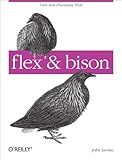
flex & bison


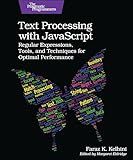
Text Processing with JavaScript: Regular Expressions, Tools, and Techniques for Optimal Performance


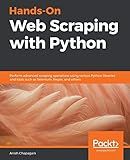
Hands-On Web Scraping with Python: Perform advanced scraping operations using various Python libraries and tools such as Selenium, Regex, and others


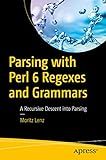
Parsing with Perl 6 Regexes and Grammars: A Recursive Descent into Parsing


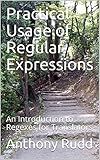
Practical Usage of Regular Expressions: An Introduction to Regexes for Translators


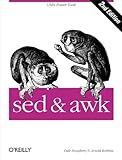
sed & awk: UNIX Power Tools (Nutshell Handbooks)


To replace spaces between words using regex, you would use the regular expression pattern "\s+" to match one or more spaces. You would then use a replacement string, such as an underscore or any other desired character, to replace the spaces.
For example, if you wanted to replace spaces between words with an underscore, you could use the following code in Python:
import re
text = "Hello World"
new_text = re.sub("\s+", "_", text)
print(new_text)
This would output:
Hello_World
Alternatively, you could replace the spaces with nothing to simply remove them:
import re
text = "Hello World"
new_text = re.sub("\s+", "", text)
print(new_text)
This would output:
HelloWorld
Using regex to replace spaces between words can be a useful technique when cleaning up text data or formatting text in a specific way.
What is the best way to test a regex pattern for replacing spaces?
One way to test a regex pattern for replacing spaces is to use a regular expression tester tool online. These tools allow you to input the regex pattern and a sample text string, and then show you the matches and replacements that would occur based on the pattern.
Another way to test a regex pattern for replacing spaces is to use a programming language that supports regex operations, such as Python or JavaScript. You can write a small script that uses the regex pattern to replace spaces in a sample text string and print the result.
You can also manually test the regex pattern by using a text editor that supports regex find and replace functionality. Simply input the regex pattern and sample text string, and observe the results of the find and replace operation.
Overall, the best way to test a regex pattern for replacing spaces depends on your preference and the tools available to you.
How to replace whitespace at the beginning of a string using regex?
You can use the following regex pattern to replace whitespace at the beginning of a string:
^\s+
In this regex pattern, ^ indicates the start of the string, and \s+ matches one or more whitespace characters. To replace the leading whitespace with another character or remove it entirely, you can use the regex pattern with your desired replacement string in a regex replace function.
Here is an example in Python:
import re
string = " Hello, world!" new_string = re.sub(r"^\s+", "", string)
print(new_string)
This will output:
Hello, world!
In this example, the leading whitespace at the beginning of the string has been removed.
How to prevent replacing spaces within quoted strings using regex?
To prevent replacing spaces within quoted strings using regex, you can use negative lookahead and lookbehind assertions to make sure that the spaces being replaced are not within quoted strings. Here is an example using a regex pattern to replace spaces outside of quoted strings:
import re
def replace_spaces(text): # Match spaces that are not within quoted strings pattern = r'(?![^"]*("([^\\"]|\\.)*")[^"]*$)\s' return re.sub(pattern, '_', text)
text = 'Hello "World lorem ipsum" foo bar' new_text = replace_spaces(text) print(new_text)
In this example, the regex pattern (?![^"]*("([^\\"]|\\.)*")[^"]*$)\s matches spaces that are not within quoted strings. The (?![^"]*("([^\\"]|\\.)*")[^"]*$) part is a negative lookahead assertion that checks if a space is not followed by a quoted string, and the \s part matches the space that should be replaced.
Using this regex pattern, the replace_spaces function will replace spaces that are not within quoted strings with an underscore.
